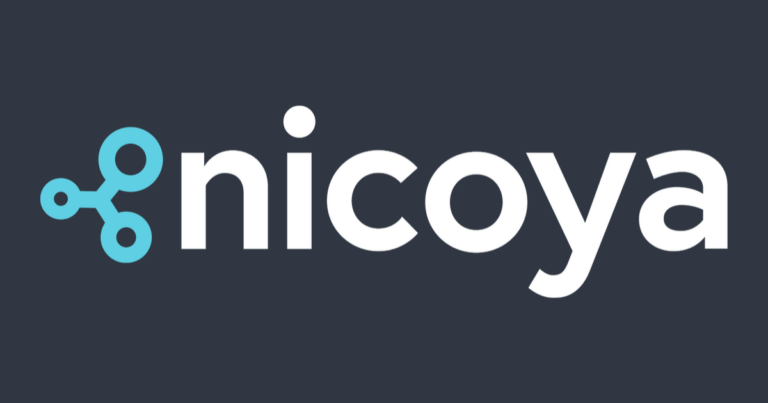Vividion Therapeutics, Inc., a clinical-stage biopharmaceutical company and wholly owned subsidiary of Bayer AG, announced the publication of a pivotal study in Science describing a major advancement in cancer research — the discovery and preclinical validation of small-molecule covalent inhibitors that selectively block RAS-dependent PI3Kα signaling, a key driver in multiple cancers.
The study, titled “Covalent inhibitors of the PI3Kα RAS binding domain impair tumor growth driven by RAS and HER2” (Klebba et al., Science, Advanced Online Publication, October 2025), showcases how these novel molecules disrupt the interaction between RAS and PI3Kα without interfering with normal, homeostatic signaling. The findings represent a new therapeutic approach for tackling RAS-driven cancers — long considered among the most challenging and elusive in oncology.
A New Pathway to Target RAS-Driven Cancers
RAS mutations are among the most common genetic alterations in cancer, occurring in roughly 20% of all human malignancies. These mutations drive tumor growth through two key signaling pathways: MAPK and PI3K. While previous attempts to inhibit both pathways have shown promise, their clinical utility has been limited by severe toxicities.
Vividion’s newly identified RAS-PI3Kα inhibitors provide a fresh approach. Rather than globally suppressing PI3Kα activity — which can disrupt essential metabolic processes — these compounds specifically block the physical interaction between RAS and PI3Kα. This targeted disruption halts the oncogenic signaling that drives cancer cell growth, while sparing normal physiological functions.
“Vividion’s RAS-PI3Kα inhibitors represent a fundamentally new way of addressing RAS-dependent cancers,” said Dr. Aleksandra Rizo, Chief Executive Officer of Vividion. “They offer the potential to disrupt one of the most critical oncogenic drivers in human malignancy without the dose-limiting toxicities that have hampered earlier therapeutic efforts. Now in Phase I, this program demonstrates our ability to translate deep scientific insights into real therapeutic innovation for patients who desperately need better options.”
Collaborative Research Reveals Precision Targeting
The research, conducted in collaboration with the Francis Crick Institute, identified multiple covalent compounds that selectively inhibit RAS activation of PI3Kα. In preclinical studies, one compound in particular showed robust inhibition of tumor growth in vivo. Notably, this occurred without affecting the normal downstream signaling essential for glucose regulation — a breakthrough in balancing efficacy and safety.
Beyond RAS-driven signaling, researchers discovered the compounds also inhibited HER2-mediated activation of PI3Kα through the same binding site — a previously unrecognized mechanism that broadens the potential therapeutic applications to HER2-positive cancers, including certain breast and gastric tumors.
“We’ve been exploring how to block RAS interactions with growth pathways for decades,” said Dr. Julian Downward, Principal Group Leader of the Oncogene Biology Laboratory at the Crick Institute. “The challenge has always been the toxicity associated with targeting these essential signaling systems. This collaboration demonstrates how an in-depth understanding of chemistry and biology can lead to a targeted solution — selectively inhibiting the RAS-PI3Kα interaction while preserving normal cellular functions.”
Redefining Drug Discovery Through Chemoproteomics
Vividion’s success stems from its covalent-first chemoproteomics platform, which enables the discovery of small molecules capable of binding to previously “undruggable” proteins. This approach allows researchers to map reactive amino acid sites across the proteome and identify unique ways to modulate protein activity.
“Our chemoproteomics engine has uncovered multiple classes of PI3Kα-selective small molecules, including both inhibitors and enhancers of RAS interaction,” said Dr. Matt Patricelli, Chief Scientific Officer of Vividion. “This not only expands our understanding of cancer biology but also provides new therapeutic avenues across multiple disease areas. These discoveries reinforce the power of covalent chemistry to reveal mechanisms that traditional drug discovery methods cannot reach.”
The RAS-PI3Kα inhibitors discovered through this technology bind covalently to the RAS binding domain of PI3Kα, effectively preventing RAS from activating the pathway that promotes cancer cell survival and proliferation. Importantly, this targeted action avoids interfering with PI3K’s critical role in metabolic regulation — a key limitation of prior PI3K inhibitors.
Implications for Future Cancer Therapies
The implications of this research extend beyond RAS-driven cancers. The dual activity against both RAS and HER2 pathways suggests potential for broader oncology applications, including combination strategies with existing targeted or immune therapies.
The molecules’ ability to selectively modulate signaling without systemic disruption also highlights a path toward next-generation precision oncology — one focused on molecular interactions rather than blanket inhibition of entire pathways.
“This breakthrough is a testament to how scientific rigor and creativity can converge to solve longstanding problems in oncology,” said Dr. Rizo. “By precisely targeting protein-protein interactions at the molecular level, we can finally begin to address cancers that have resisted treatment for decades.”
Looking Ahead
Vividion’s RAS-PI3Kα program is currently in Phase I clinical development, building on these promising preclinical results. The company aims to further evaluate safety, tolerability, and early efficacy across RAS-mutant and HER2-driven tumor types.
Supported by Bayer’s global infrastructure yet operating independently, Vividion continues to advance its pipeline of small molecules designed to reach previously inaccessible disease targets — from oncology to immunology and beyond.
With this Science publication, Vividion has not only unveiled a potential new therapeutic class but also demonstrated the transformative potential of covalent chemistry in modern drug discovery.
“By expanding the frontier of what’s druggable,” added Dr. Patricelli, “we’re opening the door to treatments that were once thought impossible — and changing the trajectory of cancer therapy.”



